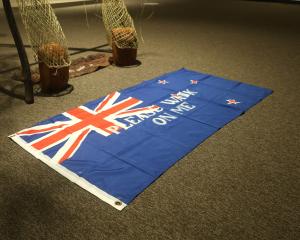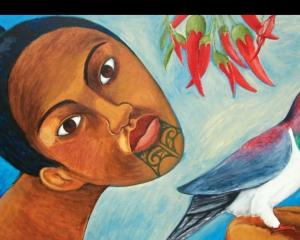
His journey from the streets of Beijing to the sacred mountain of Huang Sha is accompanied by a live performance on the erhu (Chinese violin).
William Yang's China is on at the Settlers Museum at 8pm until Saturday.
What led you into your particular world of performance?
I had been a photographer for about 10 years.
I'd had exhibitions and brought out two books, when I started experimenting with slide projection.
The first works I did were audiovisuals, image and music, but when you project a picture on a wall there is a natural tendency to talk about the image.
So I started talking with the slides.
My first full-length piece, The Face of Buddha in 1989, was a collection of nine short stories or photographic essays, each a combination of slide projection, music or the spoken word.
Right from the start, people liked this form of presentation, so I kept doing them.
My third one, Sadness, was the first to tour Australia and overseas and since then all my other six pieces have toured the world.
So the monologue with image projection and music has become my main form of artistic expression."
What came first, the photography or the storytelling?
The photography came first, and even now I always begin with images.
I used to push the slides around my light box, but now I put them in to a slideshow program on my computer to look at them.
Sequences form and then words follow.
For the first ones I used to write a script, but now I just talk them out from the beginning."
What's more important to you: social commentary or theatrical performance?"They are both important.
The photographic form lends itself to social commentary, but that can be rather dry if it's just a history lecture or social expose.
That's why I work quite hard to make the work an engaging, personal, theatrical performance with humour.
In the context of the world looking at China through the lens of the Olympic Games, and as a photographer, does the camera ever lie?
The camera is just a tool, and the photographer is the manipulator.
One always brings one's cultural prejudices to China, or anywhere for that matter.
I could on one hand show the magnificent glory of the past, as in the Great Wall, or one could show a dirty modern China with its pollution."
Who or what have been your major influences?
I have Chinese blood. I am third generation Australian-born Chinese.
I grew up as an assimilated Australian with the Chinese side unacknowledged and denied.
I had to claim my Chinese heritage.
I researched my family tree and the Chinese in Australia, and my visit to China was the last part of that process.
So the strongest part of my visits to China has been claiming a lost heritage.
Do you have any must-dos while you are in Dunedin and New Zealand?
I'd like to see the countryside and walk on a glacier before they all disappear."












